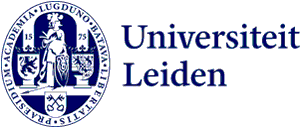
Executive Board President Annetje Ottow on fighting racism: ‘It’s the responsibility of all of us’
‘We may have taken steps together, but there is still much to do in the fight against racism and discrimination’, says Annetje Ottow, President of Leiden University’s Executive Board. ‘We have to be aware of this and continue to focus on this difficult, uncomfortable and often confronting topic.’
Ottow is offering her thoughts on racism and discrimination at Leiden University during European Week Against Racism (18-26 March). ‘As a university, we are committed to providing our students and staff with a safe learning and working environment where we can discuss different perspectives. Feeling safe and at home at the university is essential to being able to develop here. It has been said many times recently but there is absolutely no place for racism and discrimination here.’
Awareness
‘We have to keep drawing attention to this subject because it is a complicated one. It is also a matter of awareness and being in it for the long haul. People often think racism is only about the obvious cases where someone clearly and openly discriminates. Prejudices and assumptions about differences between people based on where they come from are often deeply ingrained. It is a way of thinking in which we – sometimes unconsciously, but unfortunately not always – see people as different or inferior based on their appearance.’
Own responsibility
‘It is the responsibility of all of us’, says Ottow. ‘We can also be racist without being aware of it. I experienced that myself recently when I used an old-fashioned saying in a conversation with a person of colour. She told me that this was hurtful to her. I have learned my lesson and no longer use the expression.’
Work to be done
Ottow stresses that much work still needs to be done at the university to tackle both institutional and individual racism. ‘I recently had another conversation with a group of students from Campus The Hague. The examples they mentioned shocked me.’
The current climate is clearly influenced by the war in Gaza, says Ottow. ‘This conflict has caused a sharp rise in both antisemitism and Islamophobia, and that does not help. Students said there are recent examples of people being deliberately rejected because of their faith or otherwise. Let me be very clear: that is completely unacceptable and we are taking appropriate action.’
Ottow remains hopeful that these problems can be addressed. ‘It is not always easy but we can see some great developments at the university. There was recently a good conversation at Campus The Hague between Jewish and pro-Palestine students. So it can be done.’
Training
The university offers various training courses to help fight racism and discrimination, such as the Brown Eyes Blue Eyes training. ‘We should all have the courage to speak up if we hear unacceptable remarks being made’, says Ottow. ‘These can start small and end up growing, and become a bit of a slippery slope. By saying something right away, you nip things in the bud and the other person learns from the situation.’
She concludes, ‘Everyone has a role in the change we are advocating. Change does not happen by itself; we have to keep talking. Our D&I Expertise Office has already set a lot of things in motion and is developing new plans and helping us. But it is up to all of us to ensure there is no place at this university for racism and discrimination.’
European Week Against Racism in Leiden and The Hague
The D&I Expertise Office is once again marking European Week Against Racism (18-26 March; 21 March is International Day for the Elimination of Racial Discrimination). This includes with a social media campaign highlighting microaggressions and an ‘Anti-Asian Racism Meme Battle’ in the Wijnhaven building in The Hague. And on 21 March, the Municipality of Leiden is holding a city discussion about racism: ‘Leiden praat’.
On 26 March, the National Network of Diversity Officers is holding an expert meeting on racism in higher education. Attendees include Rabin Baldewsingh, the National Coordinator against Discrimination and Racism, and various administrators, policymakers, researchers and students. ‘I’ll be there too and hope to gain lots of knowledge’, says Annetje Ottow. The meeting will focus on, a) data and monitoring, b) networks and including researchers and students of colour, and c) the social role of universities in fighting racism.
Steps are also being taken at the university, such as collecting data on diversity, student intake and attainment. A student survey is also being developed that will provide insight into the connection between belonging, dignity and respect, and student attainment, and that should help promote equal opportunities, inclusion, and dignity and respect. Inclusive teaching and inclusive language use are also being worked on, and efforts are being made to increase diversity and diversity expertise among staff.
